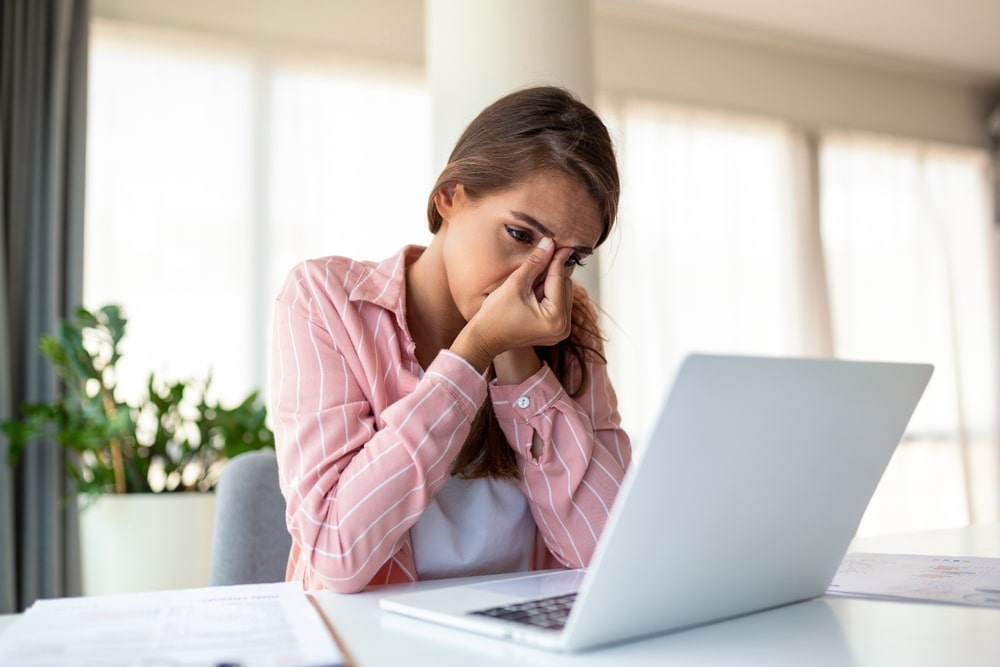The Oxford English Dictionary defines anxiety as “a feeling of worry, nervousness, or unease, typically about an imminent event or something with an uncertain outcome.” Anxiety triggers the fight-or-flight response, also known as the acute stress response. This response refers to the automatic physiological reaction that occurs when in the presence of something mentally or physically terrifying and activates the sympathetic nervous system that prepares the body to fight or flee. It causes the brain to send a surge of adrenaline (which amplifies energy output by expanding the airways, increasing heart rate and blood pressure, and redistributing blood to muscles) and cortisol (which rapidly increases blood glucose, providing a prolonged burst of energy to cope with acute stresses more effectively) throughout the body. Research suggests that anxiety may lead to a state of dysfunctional arousal which often results in persistent sleep-wake difficulties. There is a significant amount of empirical data that substantiates the connection between anxiety and sleeping problems:
- A study published in The Public Library of Science (PLOS), that examined the relationship between anxiety and sleep quality in a sample of college students, found that higher levels of anxiety were associated with poorer sleep quality, including increased sleep latency (time taken to fall asleep), more awakenings during the night, and decreased overall sleep efficiency.
- The findings from A Systematic Review Examining Sleep Disturbance In Anxiety And Related Disorders revealed that individuals with anxiety disorders were more likely to experience sleep problems, including difficulty falling asleep, frequent awakenings, and non-restorative sleep.
- In a study published in the Journal of Anxiety Disorders in 2021, researchers examined the relationship between generalized anxiety disorder (GAD) and insomnia. The results indicated a bidirectional relationship, where individuals with GAD were at a higher risk of developing insomnia, and individuals with insomnia were more likely to develop GAD, which highlights the intertwined nature of anxiety and sleep disturbances.
- A meta-analysis published in the British Medical Journal analyzed data from multiple studies to explore the association between anxiety and subjective sleep quality. The findings revealed a robust and significant relationship, with higher levels of anxiety consistently linked to poorer sleep quality and increased sleep disturbances.
Anxiety can have a significant impact on your sleep quality. Sleep is a fundamental necessity of life, and even a minor sleep deficit can have a significant effect on your physical and mental health.
Treatment In Calabasas
Calabasas is a city in California. It is a well-known suburb of Los Angeles, located west of the San Fernando Valley and north of the Santa Monica Mountains. Over the past decade, the city of Calabasas has grown in its reputation for luxury as well as for privacy which makes it a hidden gem for residential living for society’s elite, and one of the most desirable destinations in Los Angeles County. It is also home to a plethora of highly qualified mental health clinicians providing an array of therapeutic services and treatment options.
The information above is provided for the use of informational purposes only. The above content is not to be substituted for professional advice, diagnosis, or treatment, as in no way is it intended as an attempt to practice medicine, give specific medical advice, including, without limitation, advice concerning the topic of mental health. As such, please do not use any material provided above to disregard professional advice or delay seeking treatment.


